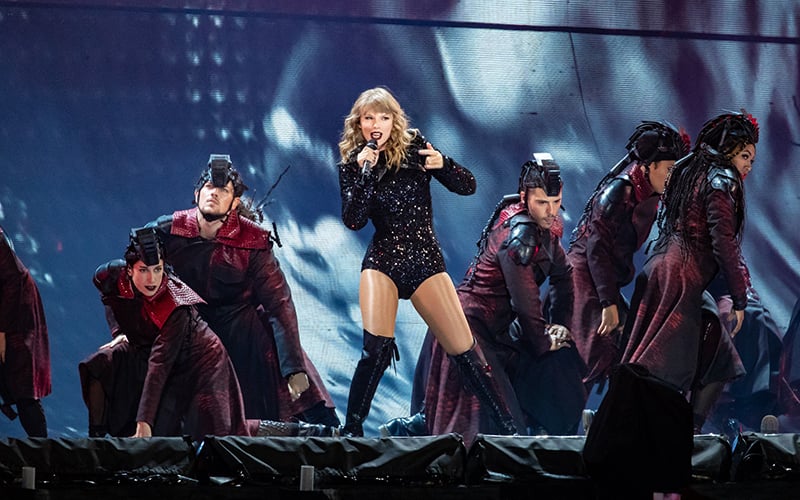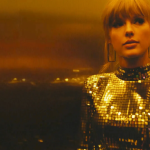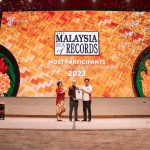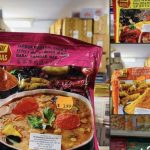Malaysia had American pop star Taylor Swift in its grasp in 2022, but lost her to Singapore a year later.
Today, the country is an onlooker as concert economics grips Southeast Asia.
Singapore’s Swift coup has sparked new strategies in the region to lure A-listers, but Malaysia has not moved in that direction.
The irony is that the lucrative live entertainment industry contributed to 6.8% of Malaysia’s GDP pre-Covid.
Swift came Malaysia’s way after the government signed a contract with a US venue management company in 2022 to make Kuala Lumpur Sports City in Bukit Jalil a magnet for sport and live entertainment.
The contract was between Malaysia Stadium Corporation and ASM Global, an affiliate of Anschutz Entertainment Group (AEG) and Swift’s concert promoter.
The cabinet of then prime minister Ismail Sabri Yaakob had given the go-ahead to the youth and sports minister Ahmad Faizal Azumu to hold discussions with AEG to bring in the big acts in its stable.
For some reason, when Anwar Ibrahim became the prime minister after GE15, the deal was not maximised, and the American company’s role was reduced to consultants for the optimisation of the National Stadium in Bukit Jalil.
Faizal told this writer he had requested to meet with his successor Hannah Yeoh after GE15 to do the handover, to speak about AEG’s job scope and about the top performers under them.
“I wanted to stress to her that we should not miss opportunities like Taylor Swift and other big names, but I never got to meet her and I assumed she wasn’t interested in doing a handover,” he said.
Helpless bystander
While neighbouring countries push ahead aggressively to make concert tourism their new growth driver, Malaysia is set for a drubbing in the sector.
Thailand and Indonesia, stung by the Swift snub, have shaken it off with new funds and new rules, such as tax breaks and visa-free travel, to woo such superstars to boost tourism and consumer spending.
Let’s clear something up. Malaysia is miles off the pace in concert and cultural tourism, a term that refers to people travelling in order to attend a concert or music festival.
Malaysia’s main problem is a severe lack of sparkle as a concert destination due to amplified political scrutiny.
Another concern is the absence of government grants or subsidies in offering the best deal for big money-making acts like what Singapore was revealed to have offered Swift.
We are where we are because we have our own fight to win in the concert scene.
There are the conservative Islamists who have habitually opposed international artistes on religious and moral grounds.
At the receiving end are event organisers who not only face religious conservatism but strict performance restrictions and the fear of “kill switch” during performances.
The overarching point is that we had this coming.
Malaysia is a classic case of non-entertainment people making or swaying big entertainment decisions, and getting it consistently wrong.
Last August, PAS’s youth wing called for a ban on all performances by foreign artistes, claiming they promoted “a culture of hedonism and perversion”.
It threatened to stir up resistance across the country if its demand was not met.
The warning followed a July incident by English band The 1975, whose frontman Matty Healy drunkenly criticised Malaysia’s anti-LGBTQ laws in a profanity-laden speech and kissed a male bandmate on stage.
The incident led to the cancellation of Good Vibes Festival at which the band was performing.
After the controversy, there was apparently a push by the so-called moral guardians to ban performances or pressure artistes to cancel.
American singer-songwriter Lauv cancelled his two sold-out shows in Kuala Lumpur, followed by K-pop girl group Mamamoo, who were forced to cancel their November concert after their permit application was rejected by the authorities.
Mamamoo is known for their support for the LGBTQ community and for challenging gender stereotypes.
Just before Coldplay took to the stage in Kuala Lumpur in November, concert organisers were told by the government to have a “kill switch” to cut off electricity during performances that break official guidelines.
The “kill switch” mechanism is illustrative of the uncertainty that now imperils international performances in Malaysia.
Anwar’s challenges
For Anwar, rising religious fundamentalism and growing economic concerns is a tough needle to thread.
He has had to manage a fine balance between pursuing economic interests and bolstering political support.
Anwar was not one of the world leaders who vied for the attention of Swift, whose “Swiftonomics” effect has already injected billions in spillover economic benefits to the Eras Tour stops so far.
According to World Bank data, Swift made more than the annual economic output of 42 nations in 2022.
In the case of British rock band, Coldplay, who played in Kuala Lumpur in November, Anwar clung to the group’s enduring support for Palestinians as reason not to call it off.
If the stand on concerts is loosened, Anwar risks getting criticised by the Islamic opposition, and if he stands with them he will be seen as ignoring a vital industry.
In October, there was some music to the ears of the entertainment industry at a time when many were still reeling from the government’s clampdown on concerts in public universities.
The government, in a move to promote the hosting of more music events in the country, announced tax exemptions for local artistes and tax reductions for international performers.
It came after authorities had taken steps to control concerts in public universities, with Anwar saying in June he was not giving room for youth to be corrupted.
The guidelines, which included a cutoff time of 10.45pm and a ban on male and female attendees sitting together, were reviewed after backlash from student groups.
But the music industry remains restless, wondering when the next attempt to out-Islamise PAS will come from the government.
While there is still some room for megastars to perform in Malaysia, the latest being Ed Sheeran last month, the reality is that the issue of international concerts will persist beyond Anwar’s tenure.
This is because PAS uses such concerts as a political marker of their morality.
Meanwhile, the hottest topic that involves the Malaysian ministry of tourism, arts and culture now is bak kut teh being declared a national heritage food.
This article was first published on FMT
MARKETING Magazine is not responsible for the content of external sites.










